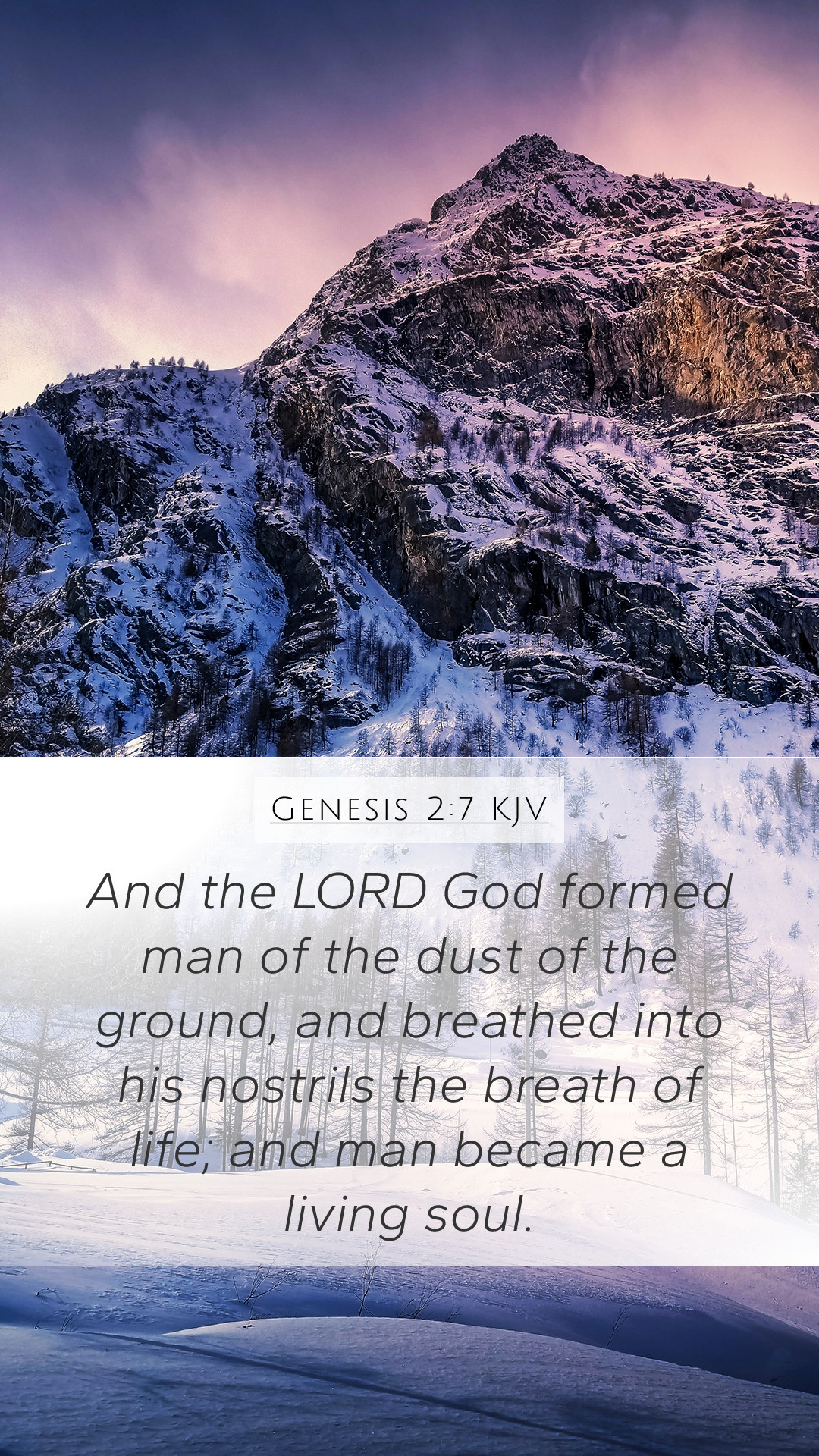Understanding Genesis 2:7
Genesis 2:7 provides a profound insight into the creation of humanity. The verse reads,
"And the LORD God formed man of the dust of the ground, and breathed into his nostrils the breath of life; and man became a living soul."
This passage is foundational in understanding both the nature of humanity and the relationship between God and man.
Verse Breakdown
- Creation of Man:
The phrase "formed man of the dust of the ground" signifies the physical nature of humanity, grounding our existence in the earth. This echoes the biblical theme of humanity's humble beginnings and dependence on God.
- Divine Breath:
The act of God breathing into man's nostrils encapsulates the impartation of life. This breath represents not just biological life but also spiritual vitality, suggesting that our life derives from God's own essence.
- Living Soul:
The term "living soul" indicates the uniqueness of human beings among God's creations, endowing us with consciousness, reason, and the capacity for relationship with the divine.
Commentary Insights
Matthew Henry's Commentary
Matthew Henry notes that the creation of man demonstrates God's personal involvement and care.
He emphasizes how God took the material (dust) and endowed it with life, indicating both humanity's physical frailty and the dignity of being created in God's image.
Albert Barnes' Commentary
Barnes discusses the theological implications of this verse, asserting that the breathing of life into man highlights a special relationship between God and humanity.
He suggests that this reflects God's eternal intention for humans to be spiritual beings with an inherent purpose in their existence.
Adam Clarke's Commentary
Adam Clarke points to the significance of the term "dust," correlating it to the mortal nature of man. He reflects on how the process of formation reveals God's intentionality in crafting humanity with care.
Furthermore, he suggests that the "breath of life" not only animates mankind but also enriches humanity with moral and spiritual awareness, setting us apart from other creatures.
Theological Significance
This verse encapsulates essential themes for Bible study insights and Bible verse understanding.
It prompts us to consider questions such as:
- What does it mean to be created in the image of God?
- How does this verse shape our view of human dignity and worth?
- In what ways does understanding our origin impact our relationship with God and others?
Cross References
- Psalm 100:3: "Know that the LORD, He is God; it is He who has made us, and not we ourselves; we are His people and the sheep of His pasture."
- Job 33:4: "The Spirit of God has made me, and the breath of the Almighty gives me life."
- Ecclesiastes 12:7: "And the dust returns to the earth as it was, and the spirit returns to God who gave it."
Application of Genesis 2:7
The implications of Genesis 2:7 reach into our daily lives. Understanding that we are made from dust and infused with divine breath encourages humility and reverence toward creation and our Creator.
It also invites reflection on how we fulfill our purpose as living souls tasked with stewardship and connection to both God and creation.
Conclusion
Genesis 2:7 serves as a vital cornerstone in our understanding of humanity from a biblical perspective.
Through this verse, we gain insight into the profound nature of our existence, shedding light on critical bible study topics like creation, life, and our relationship with God.
Whether through Bible study guides or personal reflection, this verse provides rich ground for exploration and understanding.


